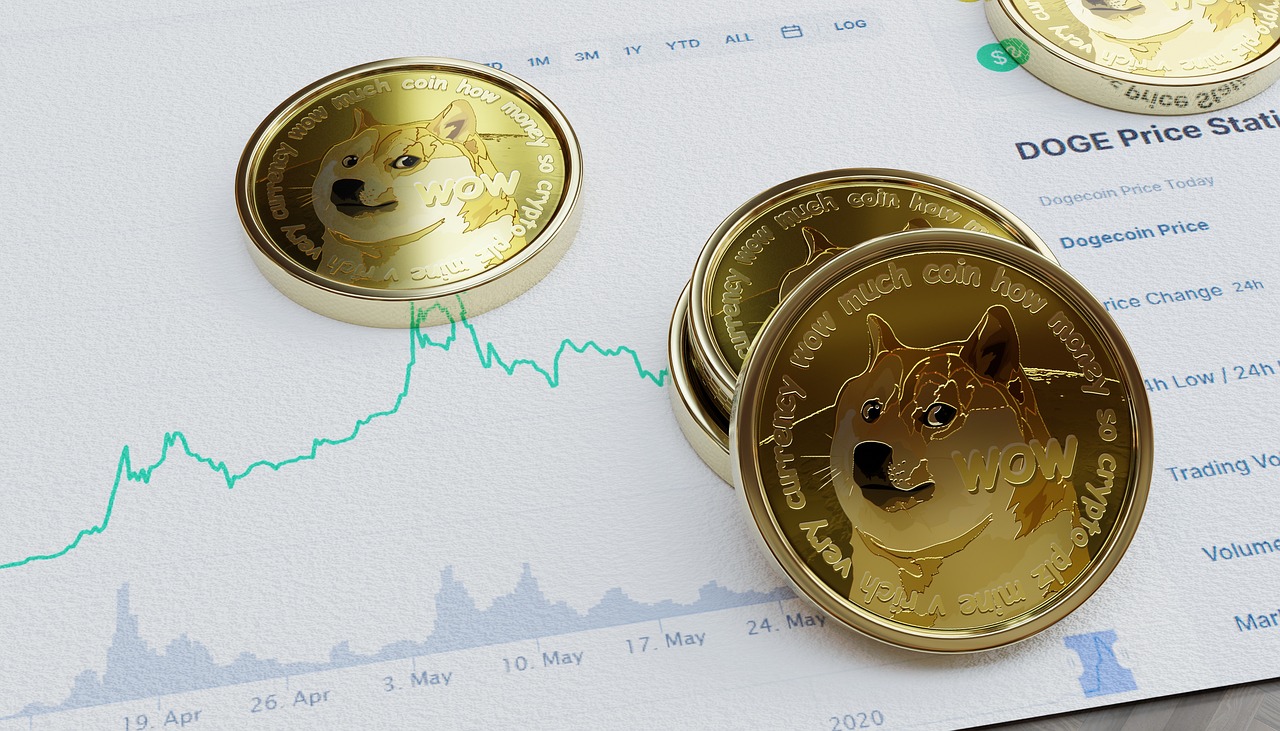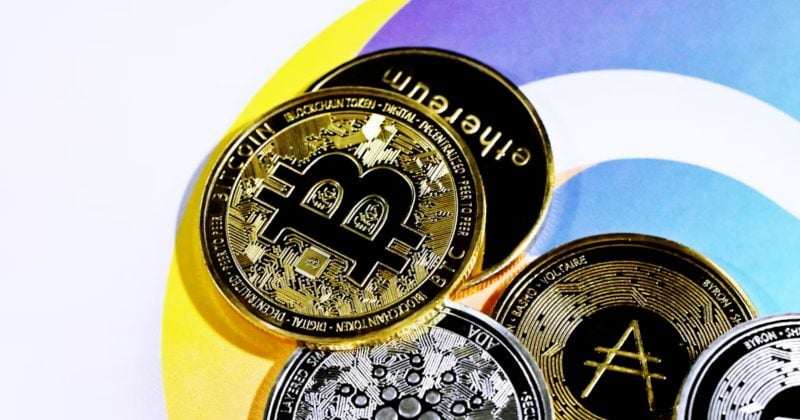Today we can observe a rapid change in global finance. We see monetary
systems shifting, inflation rising, and even the emergence of digital
economies—nations around the world are starting to
rethink the makeup of their strategic reserves.
Historically, reserve portfolios have been grounded in gold, foreign
currencies, and sovereign debt instruments; the traditional tools governments
use for economic stabilization through stockpiling assets. Whether it be cash,
oil, or other commodities reserve portfolios are now being reevaluated to
include a new type of asset—Bitcoin.
Bitcoin is no longer viewed solely as a speculative investment.
Increasingly, it is entering discussions among central banks and policymakers
as a potential tool for enhancing economic resilience and sovereignty. Its
fixed supply, decentralized infrastructure, and censorship-resistant nature
present characteristics that some governments find compelling for long-term
financial strategy.
In March 2025, the United States made a notable move by creating a
Strategic Bitcoin Reserve (SBR). Established through an executive order during
Donald Trump’s presidency, the initiative involved consolidating approximately
200,000 BTC obtained from legal forfeitures. These assets, now held under the
U.S. Treasury, are positioned as a hedge against inflation and a long-term
strategic tool—paralleling the role gold has played historically.
This approach avoids deploying taxpayer funds, relying instead on
previously recovered digital assets. The reserve is overseen by a dedicated
official, David Sacks, known as the “Crypto Czar.” Transparency is a central
feature of the program, with Bitcoin’s blockchain enabling real-time public
auditing—offering a level of visibility not easily achievable with traditional
reserve assets.
The U.S. initiative is being watched closely by other nations. Some view
it as a model that balances risk, governance, and innovation, all while using
existing assets. It also reinforces the dollar’s status in a world increasingly
influenced by digital finance.
You may find it interesting at FinanceMagnates.com: From Pharaohs’
Vaults to Digital Wallets: Gold Battles Bitcoin in the Race for Value.
Global Developments
Several other countries have started exploring Bitcoin’s potential in
more measured ways:
Switzerland: A proposal is under consideration to include Bitcoin in the Swiss
National Bank’s reserves alongside gold.
Czech Republic: Reportedly testing a reserve diversification strategy that includes a
limited Bitcoin portfolio.
Poland: Political discussions have emerged around forming a national Bitcoin
reserve aimed at promoting economic autonomy and attracting capital.
Ukraine: In the wake of wartime donations in crypto, some lawmakers are
exploring the formal integration of Bitcoin into national holdings.
UAE: While not holding Bitcoin in reserves, the UAE has become a prominent
hub for digital asset regulation and infrastructure development.
Venezuela: Hyperinflation since 2014 has driven widespread use of Bitcoin among
the public. An estimated 20% of citizens now use digital currencies to manage
purchasing power and remittances.
These actions, while varied in scale and intent, suggest a wider
re-evaluation of Bitcoin’s strategic relevance. Though official holdings remain
limited, the symbolic impact of these moves signals a growing willingness to
engage with decentralized assets at the policy level.
💥BREAKING:
THE U.S. GOVERNMENT HOLDS ALMOST 200,000 $BTC WORTH $16.92B.
THE U.S. WILL NEVER SELL THIS BITCOIN.
MORE COUNTRIES WILL FOLLOW! 🚀 pic.twitter.com/K61SyXQc8c
— Crypto Rover (@rovercrc) March 7, 2025
Why Bitcoin?
Bitcoin is currently the primary digital asset under consideration for
inclusion in national reserves. Several key features distinguish it from other
cryptocurrencies. Bitcoin has a fixed supply, with only 21 million coins set to
ever exist. It operates in a decentralized manner, without any central
authority or governance controlling it.
Bitcoin maintains neutrality through its global accessibility, remaining
free from geopolitical affiliations. Additionally, it benefits from market
maturity, supported by institutional-level trading, liquidity, and secure
custody solutions. Together, these characteristics contribute to Bitcoin’s
potential as a “sovereign-grade” asset—offering qualities comparable to gold
but inherently digital.
Strategic Reserve Considerations
Although discussions around national Bitcoin reserves are still
evolving, some economists suggest small allocations—between 1% and 3% of total
reserves—may offer notable advantages. These include hedging against inflation,
enhancing currency diversification, and enabling digital collateral for
international borrowing.
This week, the 🇨🇿 Czech Central Bank governor made waves by considering allocating up to 5% of reserves to Bitcoin.
Looks like Lagarde wasn’t thrilled and gave him a sit down.
“I had a good conversation with my Czech colleague…” pic.twitter.com/KCpf7Fx9ar
— Bitcoin News (@BitcoinNewsCom) January 30, 2025
Even a country with $10 billion in reserves could consider allocating
$100 million to Bitcoin as a way to explore these benefits without significant
financial risk. The move could also deliver reputational value by signaling
innovation and forward thinking in national financial management.
Ignoring Bitcoin Risks Future Economic Strategy
Bitcoin is emerging as a topic of serious consideration within global
reserve policy conversations. While far from a consensus or mainstream
strategy, it is no longer viewed solely through a speculative lens. Governments
are increasingly weighing its strategic utility in a shifting financial
environment.
Whether through active accumulation or regulatory groundwork, countries
are positioning themselves for a potential future in which digital assets play
a more central role in economic strategy. In this evolving landscape, even
smaller or emerging economies may find strategic value in early engagement.
The question is not simply whether Bitcoin should be part of national
reserves—but whether nations can afford to ignore the conversation.
Today we can observe a rapid change in global finance. We see monetary
systems shifting, inflation rising, and even the emergence of digital
economies—nations around the world are starting to
rethink the makeup of their strategic reserves.
Historically, reserve portfolios have been grounded in gold, foreign
currencies, and sovereign debt instruments; the traditional tools governments
use for economic stabilization through stockpiling assets. Whether it be cash,
oil, or other commodities reserve portfolios are now being reevaluated to
include a new type of asset—Bitcoin.
Bitcoin is no longer viewed solely as a speculative investment.
Increasingly, it is entering discussions among central banks and policymakers
as a potential tool for enhancing economic resilience and sovereignty. Its
fixed supply, decentralized infrastructure, and censorship-resistant nature
present characteristics that some governments find compelling for long-term
financial strategy.
In March 2025, the United States made a notable move by creating a
Strategic Bitcoin Reserve (SBR). Established through an executive order during
Donald Trump’s presidency, the initiative involved consolidating approximately
200,000 BTC obtained from legal forfeitures. These assets, now held under the
U.S. Treasury, are positioned as a hedge against inflation and a long-term
strategic tool—paralleling the role gold has played historically.
This approach avoids deploying taxpayer funds, relying instead on
previously recovered digital assets. The reserve is overseen by a dedicated
official, David Sacks, known as the “Crypto Czar.” Transparency is a central
feature of the program, with Bitcoin’s blockchain enabling real-time public
auditing—offering a level of visibility not easily achievable with traditional
reserve assets.
The U.S. initiative is being watched closely by other nations. Some view
it as a model that balances risk, governance, and innovation, all while using
existing assets. It also reinforces the dollar’s status in a world increasingly
influenced by digital finance.
You may find it interesting at FinanceMagnates.com: From Pharaohs’
Vaults to Digital Wallets: Gold Battles Bitcoin in the Race for Value.
Global Developments
Several other countries have started exploring Bitcoin’s potential in
more measured ways:
Switzerland: A proposal is under consideration to include Bitcoin in the Swiss
National Bank’s reserves alongside gold.
Czech Republic: Reportedly testing a reserve diversification strategy that includes a
limited Bitcoin portfolio.
Poland: Political discussions have emerged around forming a national Bitcoin
reserve aimed at promoting economic autonomy and attracting capital.
Ukraine: In the wake of wartime donations in crypto, some lawmakers are
exploring the formal integration of Bitcoin into national holdings.
UAE: While not holding Bitcoin in reserves, the UAE has become a prominent
hub for digital asset regulation and infrastructure development.
Venezuela: Hyperinflation since 2014 has driven widespread use of Bitcoin among
the public. An estimated 20% of citizens now use digital currencies to manage
purchasing power and remittances.
These actions, while varied in scale and intent, suggest a wider
re-evaluation of Bitcoin’s strategic relevance. Though official holdings remain
limited, the symbolic impact of these moves signals a growing willingness to
engage with decentralized assets at the policy level.
💥BREAKING:
THE U.S. GOVERNMENT HOLDS ALMOST 200,000 $BTC WORTH $16.92B.
THE U.S. WILL NEVER SELL THIS BITCOIN.
MORE COUNTRIES WILL FOLLOW! 🚀 pic.twitter.com/K61SyXQc8c
— Crypto Rover (@rovercrc) March 7, 2025
Why Bitcoin?
Bitcoin is currently the primary digital asset under consideration for
inclusion in national reserves. Several key features distinguish it from other
cryptocurrencies. Bitcoin has a fixed supply, with only 21 million coins set to
ever exist. It operates in a decentralized manner, without any central
authority or governance controlling it.
Bitcoin maintains neutrality through its global accessibility, remaining
free from geopolitical affiliations. Additionally, it benefits from market
maturity, supported by institutional-level trading, liquidity, and secure
custody solutions. Together, these characteristics contribute to Bitcoin’s
potential as a “sovereign-grade” asset—offering qualities comparable to gold
but inherently digital.
Strategic Reserve Considerations
Although discussions around national Bitcoin reserves are still
evolving, some economists suggest small allocations—between 1% and 3% of total
reserves—may offer notable advantages. These include hedging against inflation,
enhancing currency diversification, and enabling digital collateral for
international borrowing.
This week, the 🇨🇿 Czech Central Bank governor made waves by considering allocating up to 5% of reserves to Bitcoin.
Looks like Lagarde wasn’t thrilled and gave him a sit down.
“I had a good conversation with my Czech colleague…” pic.twitter.com/KCpf7Fx9ar
— Bitcoin News (@BitcoinNewsCom) January 30, 2025
Even a country with $10 billion in reserves could consider allocating
$100 million to Bitcoin as a way to explore these benefits without significant
financial risk. The move could also deliver reputational value by signaling
innovation and forward thinking in national financial management.
Ignoring Bitcoin Risks Future Economic Strategy
Bitcoin is emerging as a topic of serious consideration within global
reserve policy conversations. While far from a consensus or mainstream
strategy, it is no longer viewed solely through a speculative lens. Governments
are increasingly weighing its strategic utility in a shifting financial
environment.
Whether through active accumulation or regulatory groundwork, countries
are positioning themselves for a potential future in which digital assets play
a more central role in economic strategy. In this evolving landscape, even
smaller or emerging economies may find strategic value in early engagement.
The question is not simply whether Bitcoin should be part of national
reserves—but whether nations can afford to ignore the conversation.


























